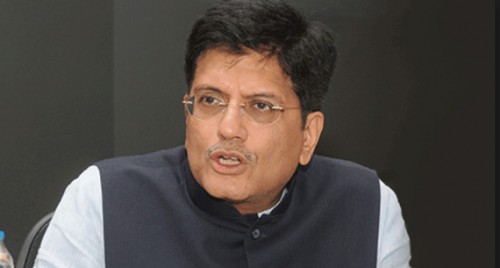
Noting that the earlier fall of the rupee to a record low in 2013 had prompted extraordinary measures from the RBI, Interim Finance Minister Piyush Goyal on Friday sought to play down any alarm on this count, saying the government would take “appropriate measures” after taking cognisance of the current global situation.
The Indian rupee ended at 68.79 per dollar on Thursday after breaching the all time low mark of Rs 69 earlier in the day due to high crude oil prices and weak macroeconomic fundamentals.
“In 2013 too, the rupee had fallen to 68-69 per dollar,” Goyal told reporters here on the sidelines of an Institute of Cost Accountants of India event.
“Then Reserve Bank Governor Raghuram Rajan introduced the FCNR-B (Foreign Currency Non-Resident Bank) deposits scheme under which $32 billion came to India for three years which helped stabilise the rates.
“We have returned those $32 billion and if you see in last five years, there has not been any depreciation in the rupee. If you look at macroeconomic data, there could be some speculation because the foreign exchange reserves were $304 billion and it was $425 billion at the end of 2017-18,” he said.
“I have full faith that the RBI, which manages foreign exchange and rates, and the government will sit together and discuss. We will take a call on appropriate measures taking into consideration the global situation.”
Goyal, who holds temporary charge of the Finance portfolio while Arun Jaitley is convalescing, ruled out any “knee-jerk reaction” to tackle the situation.
“Knee-jerk reaction is not called for. One has to work in an organised market and in an organised fashion.”
He also said that while the country’s current account deficit (CAD), which was at 4.8 per cent in 2012-13, came down to 1.9 per cent 2017-18, the fiscal deficit over the same period had fallen from 4.5 per cent to 3.5 per cent.
“Our macroeconomic indicators from all respect are better today. But you know global environment, there was some announcement with respect to oil, interest rate in the US have hardened. So, there is a flight of capital towards the US,” he said.
According to analysts, the current rupee fall is a panic reaction to various factors like the rising dollar and crude aided by a wider CAD and the continuous outflow from foreign institutional investors which have sold over Rs 40,000 crore in debt and equity so far this year.



